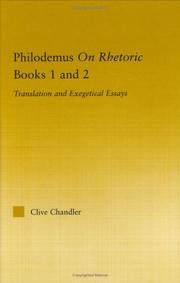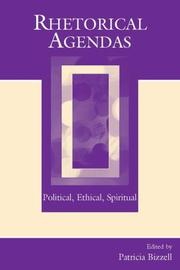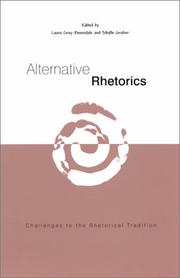| Listing 1 - 10 of 11329 | << page >> |
Sort by
|

ISBN: 0415976111 9780415976114 Year: 2006 Publisher: London Routledge
Abstract | Keywords | Export | Availability | Bookmark
 Loading...
Loading...Choose an application
- Reference Manager
- EndNote
- RefWorks (Direct export to RefWorks)
The Epicureans were notorious in antiquity for denigrating most forms of civic participation and for rejecting those cultural activities (such as poetry, music, and rhetoric) which are broadly labelled 'paideia.' In this, as in all else, they ostensibly took their cue from Epicurus and the other founders of the School. In contrast to this, the Epicurean Philodemus, who lived and wrote in Italy in the first century B.C., presents an interesting case. For a substantial portion of his surviving work is preoccupied with investigations into this 'paideia' and with demonstrating how an orthodox Epicurean is to approach them. This book selects one of those investigations, the first two books of Philodemus' 'On Rhetoric'. An annotated translation is provided of the most recent edition of this text (Longo Auricchio 1977) which is followed by a series of essays which aim to clarify Philodemus' conception of, and approach to, the problem of rhetoric for Epicureans, and in particular the way he manages citations from the works of the founders to support his arguments against other Epicureans who take a different view. The book constitutes a very helpful guide to this fragmentary and difficult text.

ISBN: 1135604886 1135604894 128237544X 9786612375446 1410615685 9781410615688 9780805853100 0805853103 9780805853117 0805853111 9781135604899 9781135604844 1135604843 9781135604882 0805853103 0805853111 6612375442 Year: 2006 Publisher: Mahwah, N.J. : Lawrence Erlbaum Associates,
Abstract | Keywords | Export | Availability | Bookmark
 Loading...
Loading...Choose an application
- Reference Manager
- EndNote
- RefWorks (Direct export to RefWorks)
This edited collection offers a broad consideration of contemporary rhetorical scholarship, tied to political, ethical, and spiritual themes. Originating from the 2004 conference of the Rhetoric Society of America, the contents of this volume reflects the conference themes of rhetorical agendas in current theory and research. The volume starts off with transcripts of the talks presented by the conference's featured speakers. The essays that follow are organized around five key topics: history, theory, pedagogy, publics, and gender. These chapters address subjects ranging from religious identit
Book
ISBN: 1443892971 9781443892971 9781443890205 Year: 2016 Publisher: Newcastle upon Tyne, UK
Abstract | Keywords | Export | Availability | Bookmark
 Loading...
Loading...Choose an application
- Reference Manager
- EndNote
- RefWorks (Direct export to RefWorks)
This book arises from a symposium held in Oxford to consider the most fruitful trajectories of rhetoric in the 21st century. The gathering comprised an international delegation of leading scholars convened to assess-from an array of perspectives - the various possible futures of the ancient discipline of rhetoric as it responds vitally to the evolving contexts of the new millennium. This collection commemorates that event by extending its scrutiny into a number of specific fields of inquiry. It includes a foreword by Prof James J. Murphy, an introductory article by the editors, and six further
Book
ISBN: 0511707444 1108009670 Year: 2010 Publisher: Cambridge : Cambridge University Press,
Abstract | Keywords | Export | Availability | Bookmark
 Loading...
Loading...Choose an application
- Reference Manager
- EndNote
- RefWorks (Direct export to RefWorks)
Edward Meredith Cope (1818-1873) was an English scholar of classics who served as Fellow and Tutor at Trinity College, Cambridge. One of the leading Greek specialists of his time, Cope published An Introduction to Aristotle's Rhetoric in 1867. Though now considered a 'standard work', that Introduction was intended as merely the first part of a full critical edition of the Rhetoric, which was left incomplete on Cope's death in 1873. Cope's manuscripts were collected and edited by John Edwin Sandys, and published in this three-volume set in 1877. Cope's analysis represented an important advance in the modern interpretation of this foundational text on the art of persuasion. Volume 3 contains the Greek text of Book 3 together with a commentary on Aristotle's understanding of style, arrangement and other rhetorical devices.
Book
ISBN: 9789004511255 Year: 2023 Publisher: Leiden ; Boston : Brill,
Abstract | Keywords | Export | Availability | Bookmark
 Loading...
Loading...Choose an application
- Reference Manager
- EndNote
- RefWorks (Direct export to RefWorks)
This volume contains the first critical edition of Aristotle's Rhetoric in its Arabo-Latin translation made by Hermann the German (d. 1272). It also contains a full study of the manuscript tradition of the Latin text and sets out the principles used in the edition, which takes account of the Arabic version of the Rhetoric. A brief presentation of the text completes the volume"--
Book
ISBN: 9786557140499 Year: 2021 Publisher: [Place of publication not identified] : Fundação Editora da UNESP,
Abstract | Keywords | Export | Availability | Bookmark
 Loading...
Loading...Choose an application
- Reference Manager
- EndNote
- RefWorks (Direct export to RefWorks)
Se a história é a história das condições do poder, então a história é a história dos usos e abusos da retórica que sustenta o poder. A luta política talvez seja exclusivamente retórica e com isso a força seria apenas um complemento posterior, pois toda demonstração de força valeria apenas por seu efeito retórico de aumento, manutenção ou perda de poder". Ao formular nesses termos o problema da ordem (e da desordem) social, Ricardo Monteagudo nos faz entender que o tema da linguagem é, de fato, um lugar privilegiado para discutirmos a simbiose entre retórica e política na obra de J.-J. Rousseau. Tendo como pano de fundo um quadro histórico da retórica, dos autores da Antiguidade até Perelman e Todorov, a tese deste livro pode ser assim enunciada: no âmbito dos escritos políticos do filósofo genebrino, em particular no Discurso sobre a origem da desigualdade e no Contrato social, as condições de possibilidade das relações civis são estabelecidas, tanto para o bem quanto para o mal, pelo uso retórico da linguagem. Longe de se limitar a uma mera exegese acadêmica de textos datados, este trabalho se apresenta a nós, leitores do século XXI, como prova cabal de que certas investigações de Rousseau acerca do discurso político permanecem atualíssimas. Monteagudo se inscreve dessa maneira numa linhagem bibliográfica que, no Brasil, remonta às análises memoráveis de Bento Prado Jr. e Luiz Roberto Salinas Fortes sobre o assunto.
Book
Abstract | Keywords | Export | Availability | Bookmark
 Loading...
Loading...Choose an application
- Reference Manager
- EndNote
- RefWorks (Direct export to RefWorks)

ISBN: 0791449742 9780791449745 9780791449738 0791449734 Year: 2001 Publisher: Albany, NY: State university of New York press,
Abstract | Keywords | Export | Availability | Bookmark
 Loading...
Loading...Choose an application
- Reference Manager
- EndNote
- RefWorks (Direct export to RefWorks)
Alternative Rhetorics questions traditional canons of rhetorical thought, and offers new perspectives on rhetorics historically overlooked within Western culture. Along with establishing new methodologies for investigating the history of rhetorics, the book also explores rhetoric's changing relationship with technology. By challenging the reader's understanding of rhetoric and the rhetorical tradition, Alternative Rhetorics provides insights that will allow researchers, educators, and students to rethink their own position in a rhetorical world.
Book
Year: 1765 Publisher: Monachii & Ingolstadii: Sumptibus Ioan. Franc. Xav. Crätz,
Abstract | Keywords | Export | Availability | Bookmark
 Loading...
Loading...Choose an application
- Reference Manager
- EndNote
- RefWorks (Direct export to RefWorks)
Book
Year: 1530 Publisher: [Parisi]: Parisiis: apud Rob. Stephanum, ex officina Rob. Stephani,
Abstract | Keywords | Export | Availability | Bookmark
 Loading...
Loading...Choose an application
- Reference Manager
- EndNote
- RefWorks (Direct export to RefWorks)
| Listing 1 - 10 of 11329 | << page >> |
Sort by
|

 Search
Search Feedback
Feedback About UniCat
About UniCat  Help
Help News
News